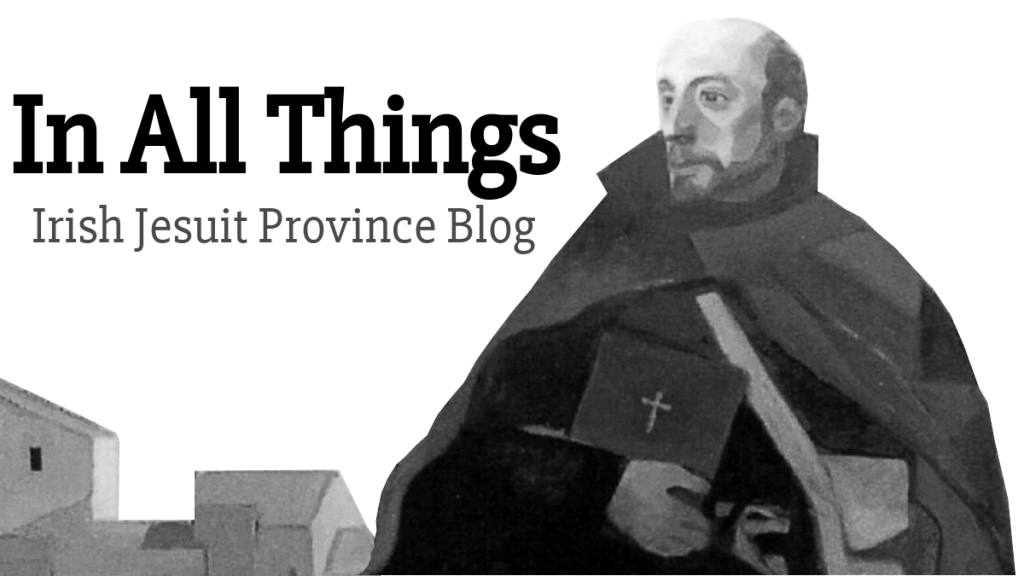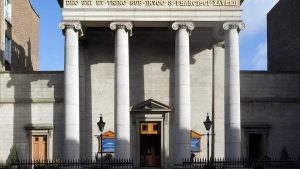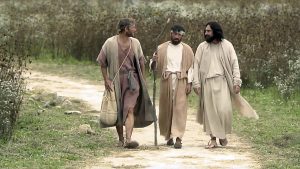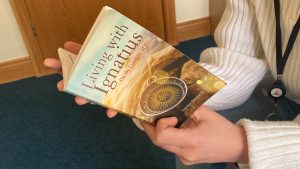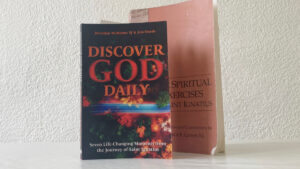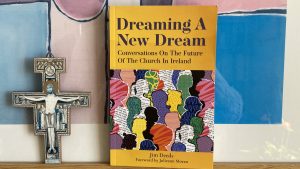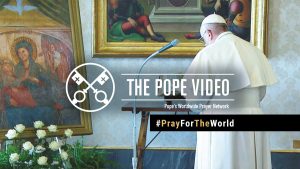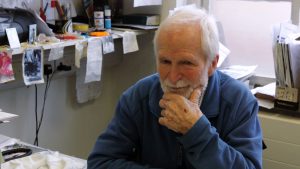Transformed by God’s love

This week we have a guest blogpost from Eoghan Keogh who is Chaplain of Belvedere College SJ in Dublin City.
At the end of the Spiritual Exercises, St Ignatius of Loyola leaves us with a contemplation which he calls ‘The Attainment of Divine Love’. It is a kind of bookend to the Spiritual Exercises undertaken by a retreatant who wants to experience the living Lord. And it is relevant to all that the retreatant will have been praying about. It is also a meditation that fits nicely into this time of Easter and onwards to Trinity Sunday.
A bit like a retreatant (especially during lockdown!), we have spent time these past number of weeks reflecting on the birth, public life, ministry, passion, and death of Jesus, and now we try to contemplate his Resurrection in our life.
One of my favourite resurrection stories is from the Gospel of John 21:13-19. This is when Jesus appears to Peter and the other disciples on the beach. He invites them to breakfast and although they know it’s him they still seem scared.
Peter has struggled for some time now. He has broken promises, he got scared and turned his back on his friend and spiritual teacher, he fell short of his chosen ideals of how he wanted to be. And he fell short on his spiritual ideals and on the commitment he made to never stop following Christ.
Now, here he is, downtrodden, broken-hearted coming face to face not only with Christ but with himself. All his doubts unmasked, all his failings before him. I always imagine this was a very tough time for Peter and yet we can all identify with him in one way or another for we share his humanity.
Then something happens. Peter moves from having spiritual ideas about who Jesus was to having a spiritual experience of who Jesus is. He encounters the love of the risen Christ. In an instant he realises the story is not over but just beginning. He not only contemplates the Divine love but receives it freely. He is able to fully grasp that God’s love is a gift freely given and not based on his efforts.
Peter is changed. He is no longer afraid. Or maybe more accurately he receives the grace to confront his fears, to confront his struggles. And he gets the freedom to follow Christ in a way he had always wanted to but never could before.
Our friend St Ignatius of Loyola in the cave in Manresa wanted to attain the very freedom Peter received in order to recreate his life. But he sought to do so through his own efforts. He lived an austere life of hard penance in that cave. And like Peter, God reveals something about himself and his love to Ignatius which he shares in his biography, writing about himself in the third person.
He sat down for a little while with his face to the river—Cardoner—which was running deep. While he was seated there, the eyes of his understanding began to be opened; though he did not see any vision, he understood and knew many things, both spiritual things and matters of faith and learning, and this was with so great an enlightenment that everything seemed new to him. It was as if he were a new man with a new intellect.
The two stories of Peter and Ignatius reflect moments in their lives when things changed. When they became aware of God’s presence and how through God’s love they seem to have been transformed. And I think it can be the same for us too. When we become conscious of the risen Christ something happens to us, we are changed. Maybe we are moved in some new direction or affirmed in our current direction.
Ignatius in his Spiritual Exercise encourages us to contemplate this experience of love and to reflect on how we encounter the risen Christ and how he encounters us in our daily lives, urging us to see God in all things.
Gerard Manley Hopkins tells us in his poem, As Kingfishers Catch Fire, that “Christ plays in ten thousand places”. If we are to contemplate the attainment of love, we need to pay attention to the places in which Christ ‘plays’ or turns up in our life.
We have to try to recognise how God is reaching out to love us. Some people like Peter and St Ignatius have huge ‘encounter’ experiences but for most of us, it’s the many small simple moments that encourage us to keep following the path of faith. What are these moments for you?
So as you move on with your day, you might take the time to contemplate some of the ‘ten thousand places ‘ in which Christ might play in your life. We think of the people we love, the hope we hold for the future, the consolation we receive from friends and family, and others in times of heartbreak.
We realise the creativity we have found to express ourselves in these new and difficult conditions. We see the new ways we have found to be of service to our children, parents, family, friends in baking, singing, dancing, DIY. And we look to our faith in new and creative ways, planting seeds of hope and living fruitfully the gift of life.
This reflection might go on for the day, it may go on for a week, or in the best case it will go on for the rest of our lives. For the resurrection is not limited to a date on our calendar but is the core of our faith lived out day after day, from the beginning until the end.
Below is a link to a recorded reading of this blogpost used on the Belvedere website.


